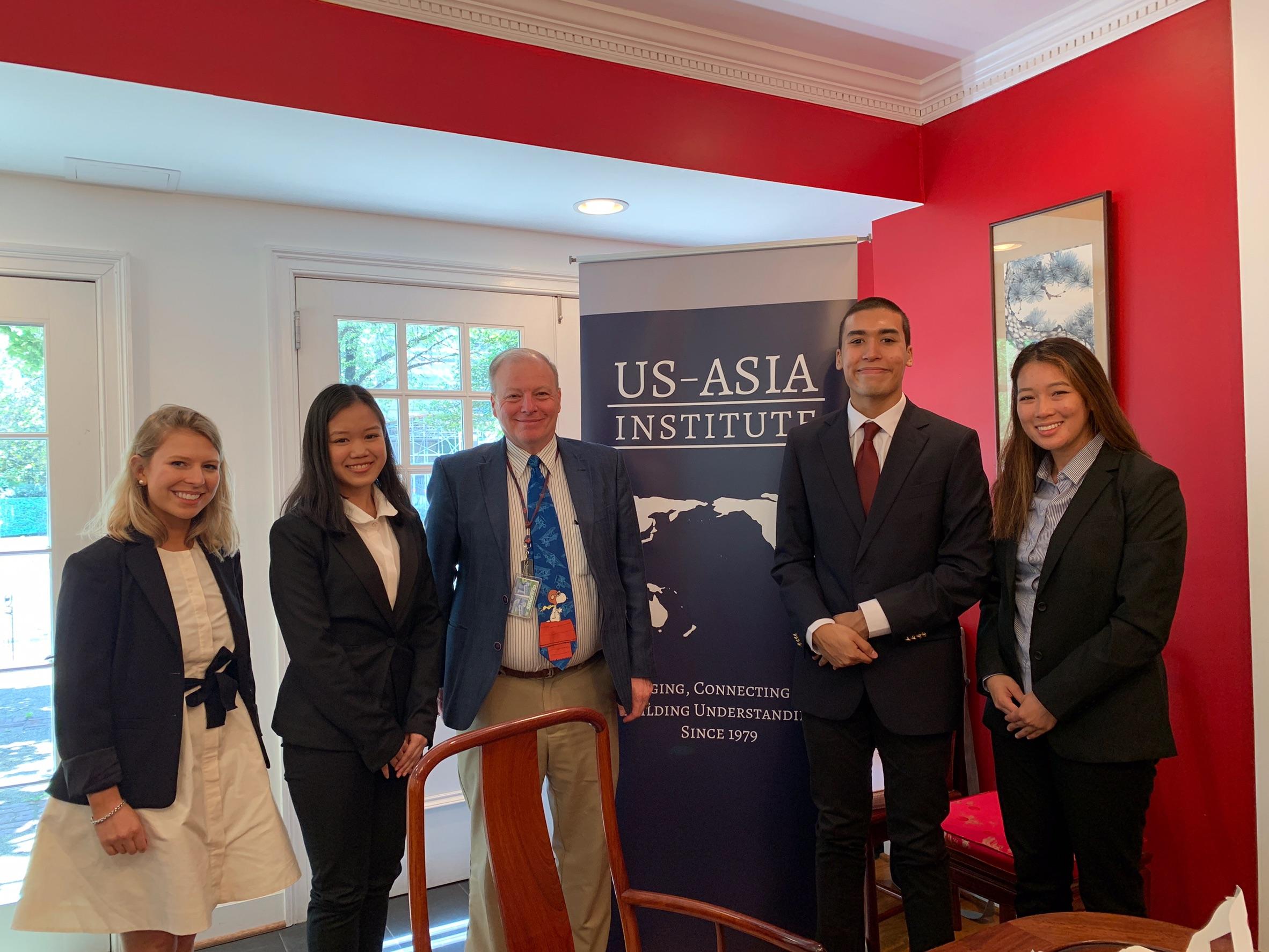วันที่นำเข้าข้อมูล 12 Nov 2024
วันที่ปรับปรุงข้อมูล 12 Nov 2024
Nan’s Experience as a Thai-American Second Generation in Washington

First, I want to express my gratitude toward the Royal Thai Embassy and Chargé d'Affaires บุศรา กาญจนลัย, as well as Mary Sue, Maddy and Isabelle from the US-Asia Institute for their work in making the Thai-American National Internship Program possible. I am also grateful to the office of Congressman Alcee Hastings, especially Evan Polisar, my intern coordinator, for making my time on the hill so meaningful.
My name is Nan Kitiarsa and I am a rising junior studying Political Science and Asian Studies. I am from Boston and I go to College of the Holy Cross in Worcester, Massachusetts. My parents moved here from rural towns in Thailand for graduate school and their determination and success constantly remind my brother and I how important education is.That is why I’ve never taken my college education for granted and why I’m so grateful to have these past 2 months in DC to learn first hand how policies are made in congress and the work of the media, think tanks, lobbyists and non-profits in influencing the process.
But more than just observing in real life what I learned in my political science textbooks, I got to talk to policy advisors on a daily basis on issues that constituents are concerned with and empathize with the witnesses who testify during committee hearings. I was given the opportunity to attend briefings on preventing and treating childhood trauma and the misuse of the Religious Freedom Restoration Act or RFRA. I also read and replied to many constituent letters on funding for public schools as well as their programs for children with disabilities. Listening to stories from constituents of Florida’s 20th district and the witnesses in their testimonies remind me of the stories I hear from the Burmese and Vietnamese refugees I work with back home in the Worcester Refugee Assistance Project or WRAP. It is really painful to hear children struggle to find the language to explain the trauma they experience in their homes and the stress of women who struggle to understand how their insurance provides them with access to birth control and preventative screenings. But my time in DC taught me the importance of giving people a voice to tell their story and to respond to them in ways that make them feel like they are heard.
I am also grateful to the programs by the Conference on Asian Pacific American Leadership, CAPAL, and the Brown bag meetings coordinated by the USAI for connecting me with so many kind, smart and brave leaders in DC. I am inspired by how they influence U.S. policy in Asia or the Asian American Native Hawaiian and Pacific Islander (AANHPI) community in the U.S. As a student considering law school right after graduation, meeting lawyers who work in rule of law development, lobbying, minority-owned businesses, criminal law and international law really allowed me to understand the kinds of work that lawyers do and narrow my focus.
In particular, being able to speak individually to women who have successful careers in DC really taught me a lot about navigating different career paths in DC as an Asian American woman. I learned to give and take in different spaces by knowing when to speak up and when to just let others be heard. I learned that it is normal to feel intimidated by tasks, roles and people
but there are ways that I can overcome it. Some of these women have become my mentors and I will always be grateful for their wisdom and guidance throughout my time in DC.
At times, I feel a little disconnected from my Thai roots because it is hard for me to explain to my family what lawyers do and why I’m so interested in government when no one has worked in law or the government. When I’m away at school, my primary languages are English and Mandarin, which hindered my Thai language abilities. But working in the Thai embassy, in a space run by Thai people, for people with an interest in Thailand helped me to understand the ways Thai and US agencies work together. In particular, working with the head of the consular section of the Thai embassy, P’Boat on an immigration law case taught me that I can use my knowledge of the US legal system and understanding of Thailand to make a difference in the Thai-American community.
To me, being a Thai American leader means always giving people a voice and also being strong enough to tell my story. Moving forward, I hope to organize projects in the Burmese community in Worcester to better serve the needs of the families I work with and to be more proud when sharing my Thai roots and upbringing with other people. I am very humbled to be part of this program and for the opportunity to grow because of it.
สถานเอกอัครราชทูต ณ กรุงวอชิงตัน
Consular Office (ฝ่ายกงสุล)
2300 Kalorama Road, N.W. Washington, D.C. 20008
Office Hours
Monday - Friday 09.00-17.00 hrs.
Official Holidays
Official Holidays